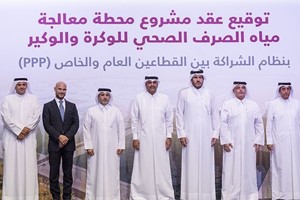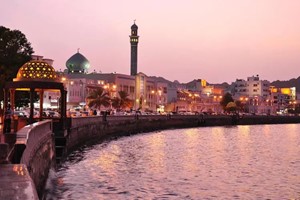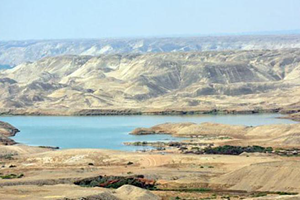Former Iraqi minister of water resources Hassan Al Janabi suggests that other countries in the Middle East and North Africa could adopt the Gulf Corporation Council's water desalination model to address the region's drinking water shortage. Al Janabi emphasized that Gulf states, despite lacking rivers, have effectively addressed the issue of drinking water supply, with desalination capacity expected to double by 2030.
“Drinking water supplies in Qatar, Saudi Arabia or the United Arab Emirates (UAE) is mainly desalination, and this is the way to go for Iraq and Egypt and other countries in the region to ensure the supply of safe drinking water for the population 100% of the time, regardless of what is there in the river,” Al Janabi said.
“This is a very important point, and that’s why we need to reverse our approach and understanding of the natural river. We need to introduce new approaches, programs, and technology to separate the drinking water issue from the general use of water for agriculture or recreation to ensure drinking water for the population regardless of the drought conditions,” he added.
The former minister said leaders could cleverly handle the geopolitical complexities in the region, especially between upstream and downstream countries, to ensure the rights of the downstream countries are not compromised by damming by the upstream. For years, downstream governments in MENA have complained that neighbors are taking more than their fair share of water.
In December 2021, amid a prolonged drought, the Iraqi Ministry of Water Resources threatened to sue Iran in international court over its water policies, claiming that Iran was digging tunnels to divert water away from Iraq. Iran, on the other hand, blamed Turkiye for Iraq’s water troubles, accusing Turkiye’s water policy of causing the dust storms that disrupt Iraq and Iran.
However, Turkiye blamed politicians of Iraq and Iran for diverting the attention from their mismanagement of water resources.
“There is a problem when our neighbors are not signatories to these conventions,” Al Janabi said.
“We need to convince our neighbors that they are vested in reaching a final settlement and agreement with the downstream countries. With Iraq, for example, a stable and prosperous Iraq represents an opportunity for these countries to prosper. Preventing Iraq from accessing the water that over history was available to it creates conditions of instability — a threat to societies. I think this is a critical issue, geopolitically.”
Meanwhile, the former minister noted inadequate infrastructure as another challenge to water security, particularly in Iraq. He said the structures had deteriorated because of the war with Iran and the invasion of Kuwait, which were near ruins before the 2003 invasion by the US.
“We have not recovered yet from those events. The Americans allocated a lot of money to try to salvage the water infrastructure in Iraq, but it’s not necessarily successful. This is because of the nature of politics in Iraq that has left infrastructure as a big challenge for the Iraqi government,” Al Janabi added.
By: Ayeni Olusegun














